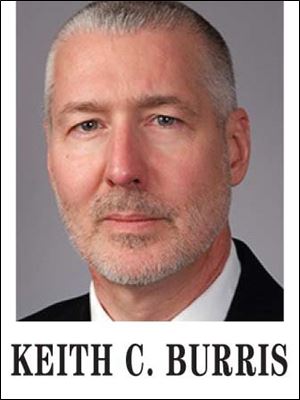
COMMENTARY
Transparency: What does it really mean?
11/22/2013
At the last City Council meeting, Mayor-elect Michael Collins said he would like to raise the salary of the next city director of business development — from $92,500 to $135,000.
It seemed like a reasonable request. This is the person who is supposed to bring the city millions in revenues and thousands of jobs. If Mr. Collins gets someone good, that person will probably take a substantial salary cut.
So I was surprised when Councilman Rob Ludeman said he would have to know more about how the new mayor hopes to structure his administration. And Councilman Joe McNamara said he would have to see the Collins budget.
On second thought, I was not so surprised. Isn’t this what councils do? Second guess?
I have to confess that, at first, it seemed petty to me — two guys now overshadowed by a former colleague saying: Hey, we still matter.
And maybe it was petty. I’m not inside anyone’s head.
But maybe it was also right.
If Mr. Collins has a plan for that job, council should be told. The issue isn’t whether $135,000 is reasonable. It is. It is whether council is a full partner in city government.
So, on third thought, I think Mr. Collins should, coolly, practice the unprecedented transparency he has pledged and give these two what they want.
But what is so important about transparency in government? It’s a good question. The answer is: It’s what transparency makes possible. And that’s two vitally important things.
The first is the right to know and the second is accountability.
The right to know is an extension of our First Amendment rights to freedom of speech and the press. To speak or publish without knowledge, without solid information, is to degrade both. The right to know what your government is doing, be it City Hall or the NSA, is at the core of your citizenship. Your First Amendment freedom is both the bulwark and the shield of that citizenship.
Accountability is what keeps representative democracy democratic. If our leaders do not have to account to us, they are merely an electoral oligarchy.
That public officials must come before public groups, engage in regular press conferences, and hold town meetings — this is all a part of accountability. When we elect a representative, or a public executive, it does not mean he gets to do whatever he wants for his two, four, or six-year term. He still must answer to his constituents.
In this system, citizens can — must — call their leaders to account. And leaders must answer. The more answers they give, and the more freely, the better.
When there is a new plan — for the airport, for the Marina District, for economic development, for changing spending priorities, or for changing public safety policy — whatever — it should be on the table for the press, other politicians, and the public to debate. That’s what transparency really means.
A wise leader opens the books, explains, teaches. And, ironically, this transparency usually helps politicians. When they fail to communicate and hunker down — Mike Bell, George W. Bush, sometimes President Obama, Richard Nixon usually — they get into trouble. When they go to the people regularly to explain what they are doing — Franklin Delano Roosevelt — they prosper.
So far, Mike Collins has been extraordinarily open. I hope he keeps it up. Fireside Chats shouldn’t be out of the question.
Keith C. Burris is a columnist for The Blade.
Contact him at: kburris@theblade.com or 419-724-6266.